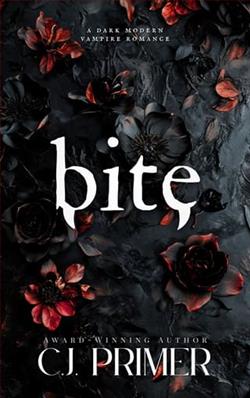Page 10 of Crimson Sin
“Miss Carter,” I state quietly, keeping my tone warm but deliberate.
She blinks. “You—what are you doing here?”
“I had a meeting with your curator,” I answer smoothly. “And I wanted to see the museum that inspired such passionate advocacy.”
She crosses her arms, the clipboard clutched to her chest like armor. “You just happened to be in the neighborhood?”
“Let's not insult each other with half-truths.” I pause, letting my eyes move over her slowly. “I came for you.”
Her lips part slightly, but no words follow. I can see the tug-of-war playing out behind her eyes, curiosity battling suspicion, logic sparring with instinct. She's intelligent enough to recognize the implications of my presence here, but not cynical enough to assume the worst.
She inhales, then speaks cautiously. “You're different here. Less smug.”
“I'm always precisely what the situation requires.”
“You talk like a Bond villain,” She murmurs, a hint of fascination curling behind the words.
I chuckle softly. “And yet you're still talking to me.”
Her eyes narrow, but the corners of her mouth twitch. She's trying not to be charmed. Failing, but trying. There's something endearing about her resistance, the way she fights against her own attraction while simultaneously engaging with it.
“Walk with me,” I suggest.
She hesitates. Her fingers tighten on the clipboard, and I can see her considering her options. The smart choice would be to refuse, maintaining distance and treating this as the business proposition it theoretically is. But Naomi Carter doesn’t seem the type to take the smart choice when the interesting choice is available.
“There's a cafe in the atrium. Neutral territory. Just conversation,” I assure her.
She’s still hesitant. Her gaze cuts toward the other interns, toward the curator who's still hovering near the manuscript display, and toward the exit. All her potential escape routes.
“I'll buy lunch,” I add. “No marriage proposals today.”
That gets a soft, incredulous laugh, but it's genuine. She nods. “Fine. One hour.”
We make our way through a side corridor until the museum opens into a sunlit atrium dotted with bistro tables and artfully arranged greenery. The air smells faintly of espresso and old stone. Natural light filters through glass panels overhead,scattering patterns on the floor that change as clouds pass. We settle at a table tucked into a quiet corner, away from the main flow of museum visitors.
I order black coffee. She orders a pressed sandwich and lemonade but doesn't touch either when they arrive. Instead, she studies me intensely.
“Do you run Obsidian Vault personally?” she asks.
“Yes,” I reply matter-of-factly.
“It's massive. Global,” she notes.
“That's true.”
Her fingers drum against the table, a nervous habit I quietly note for future reference.
“But why me? Why this exhibit?” she questions.
“Because you believe in it. And because you presented it like it mattered more than the air you breathe. That passion is rare.”
Her voice lowers. “That still doesn't answer why you need a fake wife.”
I swirl the coffee slowly in its cup, watching the dark liquid create small whirlpools. The motion gives me time to choose my words carefully. “Family obligation.”
“That's vague,” she replies, her eyes narrowing suspiciously.
“It's also true.”















